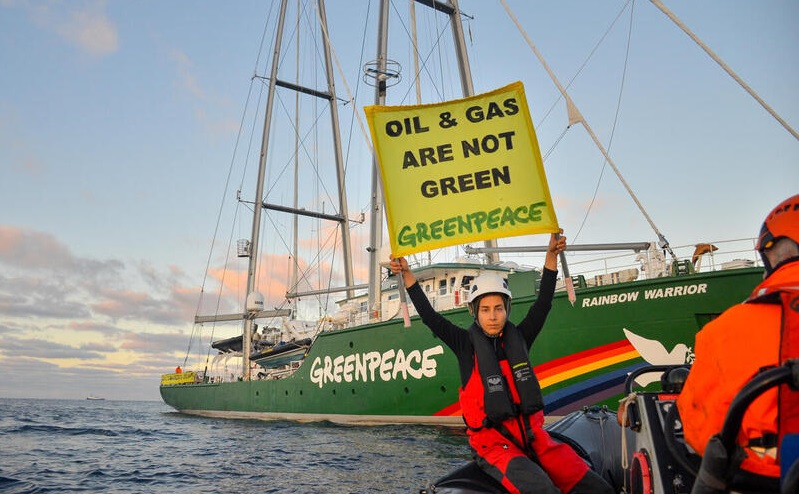Climate lawyers are challenging the EU’s support for gas pipelines, arguing it is incompatible with the bloc’s climate targets.
The European Commission has put €13bn ($14bn) worth of gas infrastructure on a list of priority projects, which helps the developers secure funding and permits.
Projects at stake include the Eastern Mediterranean gas pipeline bringing methane gas to mainland Europe through Greece and the Melita pipeline from Italy to the island of Malta.
Guillermo Ramo is one of the Client Earth lawyers on the case. He told Climate Home: “Gas infrastructure is long-lived. We will be using it for decades. So anything we do need to take into account our climate commitments.”
Asked if Eastern Mediterranean gas is necessary to replace Russian gas, he said: “Energy efficiency savings and renewables go first. Many of the pipelines will only be built in many years… it’s too late for them to be useful in the context of them diversifying away from Russia.”

The gas pipelines on the EU’s priority PCI list. (Photo: Screenshot/European Commission)
The lawyers will use a new legal option known as an internal review. Client Earth are also using this mechanism to challenge the European Union’s classification of biofuels as a green investment.
Their legal argument against the European Commission’s decision to place gas projects on the “projects of common interest” (PCI) priority list has several grounds. The first main one is that the Commission breached Article 6 of the European climate law. This states that any proposal must be assessed on its consistency with the EU’s climate targets.
Second, they say that the EU must undertake a cost-benefit analysis when it puts a project on this PCI list, including greenhouse gas emissions emissions. While the Commission had considered the carbon dioxide emissions associated with these projects, Ramo said it did not consider methane emissions. Gas pipelines often leak methane, a potent greenhouse gas, into the atmosphere.
The EU aims to stop burning methane gas for power by 2035 and to stop using gas completely by 2050. In the short term, it is aiming to rapidly replace Russian gas imports with non-Russian gas as well as renewables.
Comment: Europe should use its Putin-proofing energy plans to reinvigorate climate action
The most significant gas project on the PCI list is the Eastern Mediterranean pipeline. This 1,870 kilometre installation would link the island of Cyprus to the large Greek island of Crete and the mainland Greek gas transmission system. Construction has yet to begin.
Natasa Ioannou from Friends of the Earth Cyprus said: “The EastMed pipeline is a disaster for communities and the climate. It is not in the interests of local people in the region who will bear the costs of fossil fuel lock-in, and the harm to the ecologically sensitive Mediterranean Sea.”
Another project on the list is a 159km gas pipeline linking the Italian island of Sicily with the island state of Malta. The European Commission said Malta could then get pipeline gas and not rely on expensive shipped liquified natural gas. The Maltese government lobbied for the project to be included on the EU’s PCI list.
European Commission overreported climate spending by €72 billion, auditors find
The pipeline is controversial as it will link to the Delimiara power station. This is part-owned by Yorgen Fenech, who was accused of killing journalist Daphne Caruana Galiza with a car bomb in 2017 after she investigated corruption allegations at the power station. Fenech denies wrongdoing and has blamed the former prime minister’s chief of staff for the murder.
The European Union has been accused of hypocrisy for supporting fossil fuels in Europe while several of its biggest member states pledged at last year’s Cop26 climate summit to end finance for fossil fuels abroad.
The European Commission has 22 weeks to reply to Client Earth’s legal challenge.
